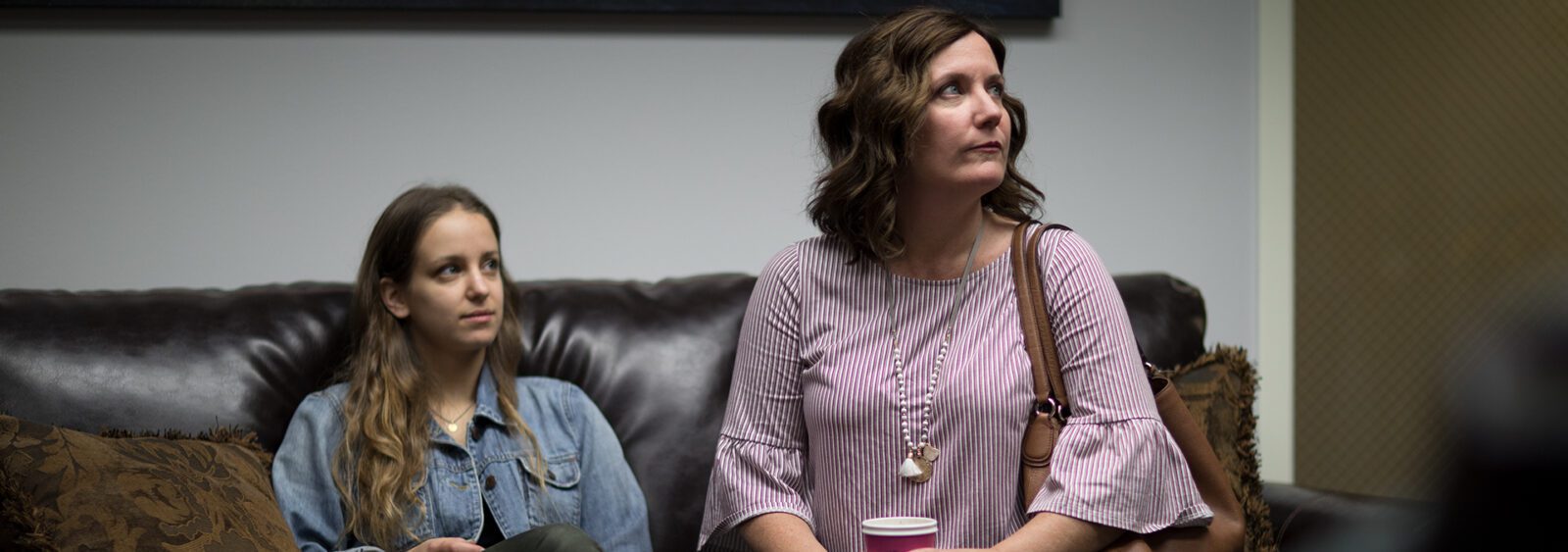“When you tug at a single thing in the universe, you’ll find it’s attached to everything else.”
Examples of Substance Use and Abuse Case
Substance use and abuse is rarely an individual issue. Every person on this planet is connected to other human beings and when drugs and alcohol become a problem, the challenges they bring tend to spread far and wide.
Here are three examples of how substance use/abuse affects can those around us, even if we think it’s not:
A) Lucy is 10 years old. Her brother Matt is 15. When they were younger, Matt was Lucy’s protector and playmate, inventing games and adventures for her. Lucy has always looked up to and trusted Matt.
Lately, Matt has started smoking Marijuana and while Lucy (and her parents) don’t know exactly what’s happening, Lucy has noticed a change in her brother. When they are home together after school, Matt isn’t as present with Lucy.
When she talks to him or tries to interact, he seems far away. Lucy doesn’t understand why this is happening and is confused and saddened by the change.
B) Alex is a freshman in college at a prestigious University. His father and two older brothers are all doctors and Alex feels pressure to continue in the family tradition. He did well in high school but the academic rigors of the pre-med classes in college have proven to be much more challenging.
His family has been openly disappointed and disapproving of his grades thus far and he feels ashamed and embarrassed when he visits home. A few months ago, a classmate told him about the medication he takes for his ADHD and how he can study for hours at a time and retain everything before a test.
Alex tried some and was impressed and pleased with the results. He is now purchasing and taking pills on a regular basis to keep up with his studies. He’s recently moved to the head of his class, but he hasn’t been sleeping or eating as much.
He’s lost weight, has been getting colds more often, and he feels restless and anxious a lot of the time. His girlfriend is upset by how much time he spends in the library and his parents have noticed his change in behavior and mood but don’t mind so much as he is getting good grades.
C) Kirah is 25 and works at a coffee shop. She drank at parties in college, and since graduating, she’s had a hard time finding a good-paying job. Many of her co-workers go out on the weekends and she has been joining them more and more.
She is finding herself looking forward to “forgetting her troubles” and “having fun” to the point of occasionally blacking out. Kirah’s parents divorced when she was 8 and while they are both involved with Kirah’s life, they don’t get along and they both wish Kirah was able to financially support herself.
Kirah’s dad helps her pay rent and her mother helps with car payments. As Kirah has been going out more, she has been asking her parents for more money each month, which strains both of their incomes as well as their relationship.
Kirah’s parents have begun to argue about who should pay what, whose fault the drinking is, and who should be responsible for disciplining their daughter.
In each of these examples, the users are not getting into legal troubles or encountering serious health problems. None the less, their use is affecting their lives and the lives of their loved ones.
At Sandstone Care, we understand that drug and alcohol abuse affects the entire family system and that each circumstance is different. We offer a variety of Family Therapy styles to support each individual and the family itself for optimal care, health, and success.
Family Involved Therapy & Substance Abuse Treatment
With family involved therapy, the individual struggling with use/abuse is the main focus. Other family members are taught coping and communication skills, and learn how to best support their loved one.
Participants are often part of a much larger treatment program and their family members are part of that plan, joining in sessions to stay updated on progress and to learn how to hold boundaries, stay connected, and employ treatment practices at home.
In example A above, Matt has a relatively healthy family system with loving, aware parents. With support, the family is able to recognize the disconnect caused by marijuana smoking and get help.
During Matt’s drug counseling for teens, he learns the negative effects of using marijuana, including how it impacts his relationship with his little sister.
The Family Involved Therapy helps him see he isn’t alone on his journey and allows him to reconnect with the love he shares with his family members.
At Sandstone Care, Family Involved Therapy is a key component of every participant’s treatment and families spend an average of 4-6 hrs per week in support sessions.
Sandstone provides marijuana treatment along with treating other forms of substance abuse and co-occurring disorders.
Family Therapy & Co-Occurring Disorders Treatment
In more traditional Family Therapy, the entire family system is seen as “client” and the focus is on supporting the health of the whole family as well as the struggling individual. Not only can the actions of the individual affect the family, the family dynamics may be contributing to an individual’s challenges at hand.
In example B, the family’s high standards of academic and vocational success are creating unhealthy levels of stress for Alex. In turn, he has begun to illegally use prescription drugs to meet their expectations.
Through a young adult prescription drugs addiction treatment program, Alex is learning tools for healthy studying and how to manage stress naturally, as well as how to speak his needs.
Early on in his work, it becomes clear that his actions are a response to the larger family system and the entire family attends sessions to re-orient their damaging expectations.
They are able to understand how the entire family’s system may be unhealthy and how to take steps to change it.
At Sandstone Care, we are pleased to offer this kind of “Systemic” Family Therapy in addition to Family Involved Therapy. At Sandstone, participants engage in an individualized treatment program and the amount of family support may be adjusted depending on need.
Should a family dynamic call for even more support, Sandstone Care’s team may refer a private practice family therapist to work with parents or additional family members.
In example C above, Kirah enrolls in a young adult alcohol rehab program but her mom and dad have some interpersonal issues to resolve so they can be of best support to Kirah.
In this case, they may work with a private practice therapist recommended by Sandstone until they reach a place of efficient co-parenting. They are then set up to work with Kirah’s Sandstone team to learn how to help their daughter.
At Sandstone Care, we believe deeply in community and connection being integral parts of recovery. We know from first-hand experience that family involvement makes a huge difference in an individual’s treatment and we are pleased to offer a variety of Family Therapy options.
If you or your loved one is considering young adult or teen drug treatment, contact us. Our team is happy to answer any questions you may have and help you determine if support is needed.
About the Author: At Sandstone Care, we help teens, young adults, and their families overcome challenges with substance use, addiction, and mental health conditions. We want to provide the motivation, tools, steps, and community that will produce lasting outcomes.
We’ve designed our continuum of recovery programs to meet the unique needs of teens and young adults struggling with addictions to drugs, alcohol, and underlying mental health concerns such as anxiety, depression, trauma, and bipolar disorders.
We have dedicated our lives and our organization to helping teens and young adults get the most out of life. This means that every aspect of our program is geared towards teens and their families. Learn more at sandstonecare.com.





